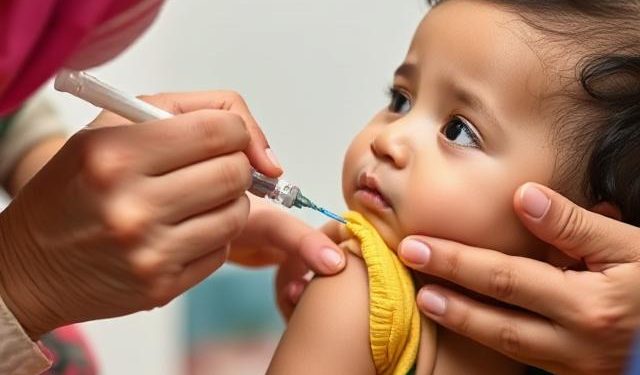Childhood immunizations are a critical component of healthcare that protect children from potentially life-threatening diseases. By following the recommended immunization schedules, parents can ensure their children are fully protected against a wide range of infections. In this comprehensive guide, we will explore the importance of childhood immunizations, the recommended schedules, common questions and concerns, and tips for ensuring your child receives all necessary vaccines.
Why Are Childhood Immunizations Important?
Childhood immunizations are essential for protecting children from serious diseases that can have lifelong consequences. Vaccines work by stimulating the immune system to produce antibodies that recognize and fight off specific pathogens, such as viruses and bacteria. By receiving vaccines according to the recommended schedules, children can develop immunity to these diseases without actually getting sick.
Immunizations not only protect individual children but also help to prevent the spread of infectious diseases within the community. This concept, known as herd immunity, is particularly important for protecting vulnerable populations, such as infants who are too young to be vaccinated and individuals with compromised immune systems.
Recommended Childhood Immunization Schedules
The Centers for Disease Control and Prevention (CDC) and the American Academy of Pediatrics (AAP) have established recommended immunization schedules for children from birth through 18 years of age. These schedules outline the vaccines that children should receive at each well-child visit, based on their age and specific risk factors.
Some of the vaccines included in the childhood immunization schedules are:
- DTaP (Diphtheria, Tetanus, and Pertussis)
- MMR (Measles, Mumps, and Rubella)
- Hepatitis B
- Polio
- Varicella (Chickenpox)
It is important for parents to follow the recommended immunization schedules and ensure that their children receive all necessary vaccines on time. Delaying or skipping vaccines can leave children vulnerable to serious diseases and put their health at risk.
Common Questions and Concerns

As a parent, you may have questions or concerns about childhood immunizations. Some common questions include:
- Are vaccines safe?
- Do vaccines cause autism?
- Can my child receive multiple vaccines at once?
- What are the potential side effects of vaccines?
It is important to address these questions and concerns with your child’s healthcare provider. Vaccines are rigorously tested for safety and effectiveness before being approved for use, and the benefits of immunization far outweigh the risks of potential side effects. Multiple studies have shown that there is no link between vaccines and autism, and receiving multiple vaccines at once is safe and does not overload the immune system.
Tips for Ensuring Your Child Receives All Necessary Vaccines
Parents can take proactive steps to ensure their children receive all necessary vaccines on time. Some tips for staying on track with childhood immunizations include:
- Keep a record of your child’s immunizations and bring it to every well-child visit.
- Follow the recommended immunization schedules provided by the CDC and AAP.
- Stay informed about any updates or changes to the recommended schedules.
- Ask your child’s healthcare provider about any vaccines that may be missing or overdue.
- Plan ahead for upcoming well-child visits to ensure your child receives all necessary vaccines.
By following these tips and working closely with your child’s healthcare provider, you can help protect your child’s health and well-being through timely immunizations.
Conclusion
Childhood immunizations are a crucial aspect of healthcare that protect children from serious diseases and contribute to overall public health. By following the recommended immunization schedules, parents can ensure their children are fully protected against a wide range of infections. Addressing common questions and concerns, staying informed about updates to the schedules, and taking proactive steps to ensure timely vaccination are key elements of protecting your child’s future through immunization.
Remember, vaccines save lives and play a vital role in safeguarding the health of our communities. By prioritizing childhood immunizations and working together with healthcare providers, parents can protect their children’s health and well-being for years to come.



































